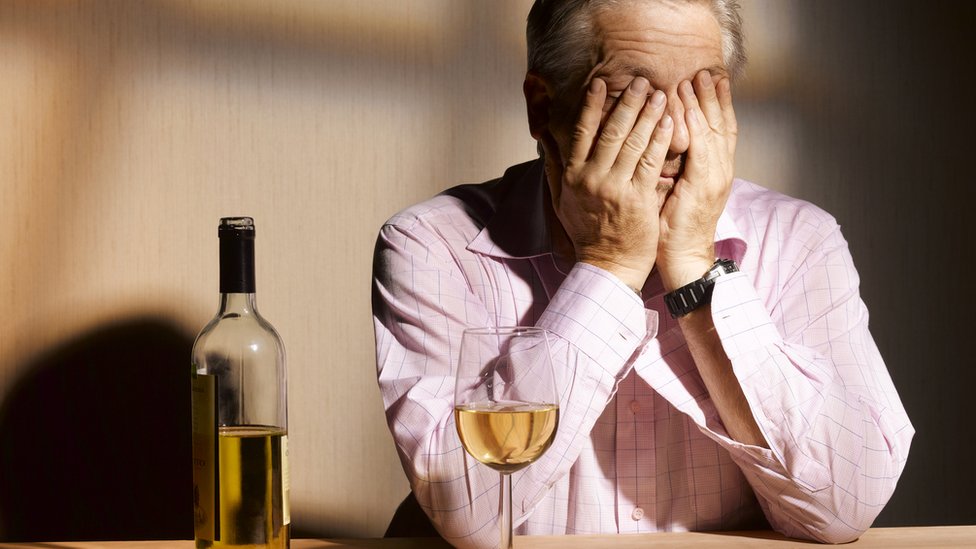

wordpress-seo domain was triggered too early. This is usually an indicator for some code in the plugin or theme running too early. Translations should be loaded at the init action or later. Please see Debugging in WordPress for more information. (This message was added in version 6.7.0.) in /home/sehatnagar.com/public_html/wp-includes/functions.php on line 6114
Alcohol consumption is a common habit for many people. However, excessive drinking can have negative effects on your body, including the suppression of testosterone production. Testosterone is a hormone that is essential for male sexual development, muscle growth, and maintaining bone density. Low testosterone levels can be a reason for decrease in libido, muscle mass, and energy levels. Therefore, many men wonder if quitting alcohol can help increase their testosterone levels. In this article, we will explore the relationship between alcohol consumption and testosterone production. We will also explore the answer that “Will Quitting Alcohol Increase Testosterone” & “how alcohol affects testosterone”. Let’s get start by knowing what is testosterone
Testosterone is a hormone that take place in male testes and in smaller amounts in the ovaries in females. We can consider it the primary male sex hormone and plays a crucial role in the development of male reproductive tissues, such as the testes and prostate, as well as secondary sexual characteristics like increased muscle mass, body hair growth, and deepening of the voice during puberty. Testosterone also plays a critical role in maintaining bone density, red blood cell production, and overall sense of well-being. In females, testosterone is important for maintaining bone density, muscle mass, and overall health. Testosterone levels can fluctuate throughout the day and can be influenced by a variety of factors, including age, stress, diet, and exercise.
Alcohol consumption has been shown to suppress testosterone production. Studies have found that alcohol can reduce testosterone levels in men by up to 23% within a few hours of consumption. Alcohol can have a direct impact on the testes, reducing the production of testosterone. Additionally, alcohol consumption can increase the production of the hormone estrogen, which can further suppress testosterone production.

The liver plays a crucial role in metabolizing alcohol. When the liver is processing alcohol, it prioritizes the breakdown of alcohol over other metabolic processes, such as testosterone production. This can lead to a decrease in testosterone levels in the body. Furthermore, alcohol can cause inflammation in the liver, leading to long-term liver damage and further impacting testosterone production.
Here is the perfect answer of the question you are looking for “Will Quitting Alcohol Increase Testosterone?“
Quitting alcohol can help increase testosterone levels in men. Studies have shown that men who quit alcohol consumption can experience a significant increase in testosterone production. One study found that men who abstained from alcohol for three weeks experienced an average increase of 5% in their testosterone levels. Additionally, another study found that men who quit alcohol for four weeks experienced an average increase of 24% in their testosterone levels.
Quitting alcohol can also help improve liver function, which can further enhance testosterone production. Alcohol can cause inflammation and damage to the liver, which can lead to decreased testosterone levels. By quitting alcohol, the liver can heal, and testosterone production can improve.
However, quitting alcohol may have other unintended consequences for testosterone levels. Alcohol consumption, for example, is frequently linked to poor nutrition and weight gain, both of which can contribute to low testosterone levels. Quitting alcohol may increase your chances of making healthier food choices and maintaining a healthy weight, which may have a positive effect on testosterone levels. In addition, alcohol use is often associated with negative health behaviors, such as smoking and lack of physical activity.
Quitting alcohol may motivate you to adopt healthier behaviors, which may increase testosterone levels. For example, regular physical activity are useful to increase testosterone levels in men. However, until now, research is not enough on the specific effects of quitting alcohol on testosterone levels. To fully understand the relationship between alcohol use and testosterone levels, as well as to determine whether quitting alcohol has any effect on testosterone levels, we need some more research.
It’s essential to note that other factors can also impact testosterone production, and quitting alcohol may not be a cure-all solution. Factors such as stress, lack of sleep, poor diet, and lack of exercise can all impact testosterone production. Therefore, men looking to increase their testosterone levels should consider a holistic approach that includes addressing these factors along with quitting alcohol.
Testosterone Recovery After Alcohol Abuse
Recovery from alcohol abuse and its effects on testosterone production requires a holistic approach. Quitting alcohol is an essential step in the process, but other lifestyle factors such as stress, diet, and exercise should also be addressed to promote overall health and well-being. If you are struggling with alcohol abuse, it’s important to seek professional help and support to manage the recovery process effectively.
Quitting alcohol can help increase testosterone levels in men. Alcohol consumption can suppress testosterone production and cause long-term damage to the liver, further impacting testosterone production. By quitting alcohol, men can improve liver function, leading to increased testosterone production. However, it’s essential to note that other factors can also impact testosterone production, and quitting alcohol may not be a cure-all solution. Men looking to increase their testosterone levels should consider a holistic approach that includes addressing other lifestyle factors such as stress, sleep, diet, and exercise.
Related Searches:
can alcohol lower testosterone. does alcohol affect testosterone. does beer reduce testosterone. alcoholism and low testosterone. testosterone recovery after alcohol abuse.
Read Also:
Does Smoking Cigars Increase Testosterone?
Does Smoking Lower Testosterone? The Effects Of Smoking On Men’s Hormonal Health